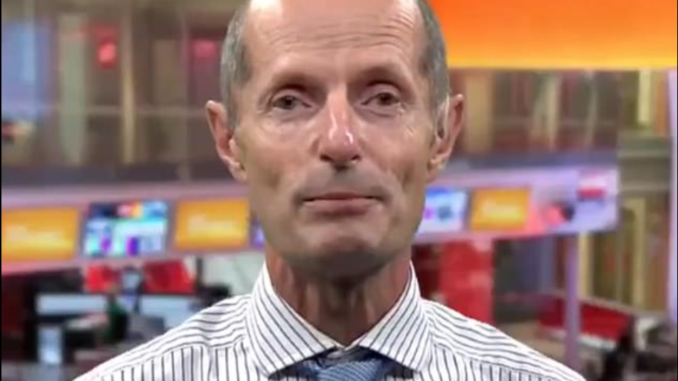
British scientists claim to have made a breakthrough in the race against time for a vaccine to protect millions against the killer coronavirus.
Infection specialist Professor Robin Shattock, of Imperial College London, revealed his team plan to begin trials of their experimental jab on animals next week.
The team will then move onto humans in the summer, if they can achieve funding and that early tests are successful.
Researchers across the world are desperately trying to find a vaccine against the SARS-like infection, which can cause pneumonia.
The current record time for producing a vaccine is for Zika, which took academics seven months to go from the lab to human trials.
Doctors fear if it takes that long this time, the unnamed coronavirus could already have swept the globe.
Almost 500 people have already died and 25,000 have been infected, with cases recorded in almost 30 countries or territories outside China.
Professor Shattock told Sky News that standard approaches to creating a vaccine can take between two and three years before it gets ‘to the clinic’.
But he added: ‘We have gone from that sequence to generating a candidate in the laboratory in 14 days.
‘And we will have it in animal models by the beginning of next week. We’ve short-tracked that part.
‘The next phase will be to move that from early animal testing into the first human studies.’
He revealed that his Imperial academic team believes ‘with adequate funding we could do that in a period of a few months’.
Professor Shattock’s claim comes after a team in Hong Kong last week claimed to have made a vaccine that could protect against the killer coronavirus.
Professor Shattock admitted the vaccine would be too late for the current outbreak – but added it will be vital if further cases crop up.
He said: ‘We may see a second wave come through on a global basis and if it comes a vaccine will be really important and would be in place to tackle that.’
Britain has already pledged £20million to CEPI, an international agency set up to deal with health emergencies such as the coronavirus outbreak.
But the team warned it will be at least one year before it could dished out to humans, with safety trials on animals and humans needed first.
The team at the University of Hong Kong are not the only ones to be working to find a vaccine against the deadly virus, still yet to be officially named.
The US National Institutes of Health announced last weekend that it plans to begin tests of experimental jabs in April.
Facing the prospect of a pandemic, UK Health Secretary Matt Hancock is thought to have ordered an acceleration of vaccine trials.
Another scientist last week claimed a coronavirus vaccine she is developing could be tested on humans in two months’ time.
Dr Kate Broderick, from Inovio Pharmaceuticals in Pennsylvania, said her team is the closest to developing a vaccine to protect against the Wuhan coronavirus.
They are testing the jab, named INO-4800, on animals and hope to start human trials in eight weeks’ time.
It comes as senior government sources today claimed that the UK was considering a blanket ban on all direct flights from China.
The US, Australia and New Zealand have already put a stop to any foreign citizens entering their countries on commercial flights if they have come from China.
Ministers are mulling over whether to follow suit, but any UK measures will depend on whether restrictions could be co-ordinated with other countries – including the EU.
END

Be the first to comment